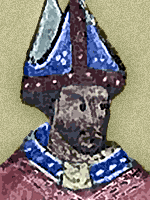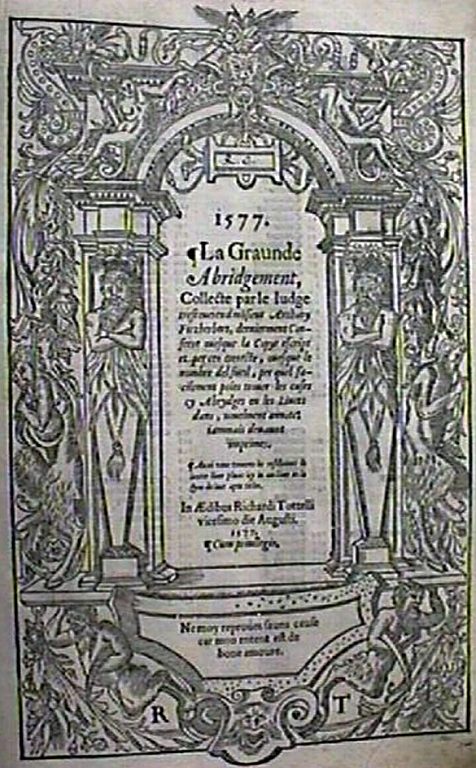|
Walter Of Henley
Walter of Henley (Walter de Henley) was an English agricultural writer of the thirteenth century, writing in French. His known work is called ''Le Dite de Hosebondrie'' (or ''Husbandry''), written about 1280, and deals with the agricultural management of a manor. Little of Walter of Henley is known except that he once served in the office of bailiff. A manuscript of ''Husbandry'' housed at the University of Cambridge states that Walter was first a knight and then a friar-preacher, specifically a Dominican. Walter's ''Husbandry'' was one of four agrarian treatises that appeared in the thirteenth century, treatises said by medieval historian Eileen Power to be "undoubtedly the most original contribution of the Middle Ages to scientific agriculture. Their value lies," she noted, "in their strictly empirical character, for they appear to spring straight from the soil, owing nothing to their great classical forerunners." Power attributes the appearance of these treatises in the thirte ... [...More Info...] [...Related Items...] OR: [Wikipedia] [Google] [Baidu] |
Agriculture
Agriculture or farming is the practice of cultivating plants and livestock. Agriculture was the key development in the rise of sedentary human civilization, whereby farming of domesticated species created food surpluses that enabled people to live in cities. The history of agriculture began thousands of years ago. After gathering wild grains beginning at least 105,000 years ago, nascent farmers began to plant them around 11,500 years ago. Sheep, goats, pigs and cattle were domesticated over 10,000 years ago. Plants were independently cultivated in at least 11 regions of the world. Industrial agriculture based on large-scale monoculture in the twentieth century came to dominate agricultural output, though about 2 billion people still depended on subsistence agriculture. The major agricultural products can be broadly grouped into foods, fibers, fuels, and raw materials (such as rubber). Food classes include cereals (grains), vegetables, fruits, cooking oils, meat, milk, ... [...More Info...] [...Related Items...] OR: [Wikipedia] [Google] [Baidu] |
Agricultural Management
Agricultural science (or agriscience for short) is a broad multidisciplinary field of biology that encompasses the parts of exact, natural, economic and social sciences that are used in the practice and understanding of agriculture. Professionals of the agricultural science are called agricultural scientists or agriculturists. History In the 18th century, Johann Friedrich Mayer conducted experiments on the use of gypsum (hydrated calcium sulphate) as a fertilizer.John Armstrong, Jesse Buel. ''A Treatise on Agriculture, The Present Condition of the Art Abroad and at Home, and the Theory and Practice of Husbandry. To which is Added, a Dissertation on the Kitchen and Garden.'' 1840. p. 45. In 1843, John Bennet Lawes and Joseph Henry Gilbert began a set of long-term field experiments at Rothamsted Research in England, some of which are still running as of 2018. In the United States, a scientific revolution in agriculture began with the Hatch Act of 1887, which used the term " ... [...More Info...] [...Related Items...] OR: [Wikipedia] [Google] [Baidu] |
Manorialism
Manorialism, also known as the manor system or manorial system, was the method of land ownership (or "tenure") in parts of Europe, notably France and later England, during the Middle Ages. Its defining features included a large, sometimes fortified manor house in which the lord of the manor and his dependents lived and administered a rural estate, and a population of labourers who worked the surrounding land to support themselves and the lord. These labourers fulfilled their obligations with labour time or in-kind produce at first, and later by cash payment as commercial activity increased. Manorialism is sometimes included as part of the feudal system. Manorialism originated in the Roman villa system of the Late Roman Empire, and was widely practiced in medieval western Europe and parts of central Europe. An essential element of feudal society, manorialism was slowly replaced by the advent of a money-based market economy and new forms of agrarian contract. In examining the o ... [...More Info...] [...Related Items...] OR: [Wikipedia] [Google] [Baidu] |
Bailiff
A bailiff is a manager, overseer or custodian – a legal officer to whom some degree of authority or jurisdiction is given. Bailiffs are of various kinds and their offices and duties vary greatly. Another official sometimes referred to as a ''bailiff'' was the ''Vogt''. In the Holy Roman Empire a similar function was performed by the ''Amtmann''. British Isles Historic bailiffs ''Bailiff'' was the term used by the Normans for what the Saxons had called a '' reeve'': the officer responsible for executing the decisions of a court. The duty of the bailiff would thus include serving summonses and orders, and executing all warrants issued out of the corresponding court. The district within which the bailiff operated was called his ''bailiwick'', even to the present day. Bailiffs were outsiders and free men, that is, they were not usually from the bailiwick for which they were responsible. Throughout Norman England, the Saxon and Norman populations gradually mixed, and ''reeve' ... [...More Info...] [...Related Items...] OR: [Wikipedia] [Google] [Baidu] |
University Of Cambridge
, mottoeng = Literal: From here, light and sacred draughts. Non literal: From this place, we gain enlightenment and precious knowledge. , established = , other_name = The Chancellor, Masters and Scholars of the University of Cambridge , type = Public research university , endowment = £7.121 billion (including colleges) , budget = £2.308 billion (excluding colleges) , chancellor = The Lord Sainsbury of Turville , vice_chancellor = Anthony Freeling , students = 24,450 (2020) , undergrad = 12,850 (2020) , postgrad = 11,600 (2020) , city = Cambridge , country = England , campus_type = , sporting_affiliations = The Sporting Blue , colours = Cambridge Blue , website = , logo = University of Cambridge logo ... [...More Info...] [...Related Items...] OR: [Wikipedia] [Google] [Baidu] |
Bertha Putnam
Bertha Haven Putnam (1872 – February 26, 1960) was an American historian, specialising on the judicial and administrative history of medieval England. Putnam grew up in Philadelphia, the daughter of George Haven Putnam, author and publisher, and son of the publisher George Palmer Putnam. She attended Bryn Mawr College, and got her bachelor's degree in 1893. She later taught at the Brearley School in New York City, before getting her doctorate from Columbia University in 1908. She started teaching at Mount Holyoke College in 1908, and was made professor in 1924. Here she remained until her retirement in 1937. Her career, from Bryn Mawr to Holyoke, ran parallel to that of Nellie Neilson, a fellow medievalist. She also worked closely with Eileen Power and Helen Cam. An attack of shingles left her partially blind in the late 1940s. Putnam died of arteriosclerosis in South Hadley, Massachusetts in 1960. Her main focus was the office of the Justice of the Peace, and how it develo ... [...More Info...] [...Related Items...] OR: [Wikipedia] [Google] [Baidu] |
Robert Grosseteste
Robert Grosseteste, ', ', or ') or the gallicised Robert Grosstête ( ; la, Robertus Grossetesta or '). Also known as Robert of Lincoln ( la, Robertus Lincolniensis, ', &c.) or Rupert of Lincoln ( la, Rubertus Lincolniensis, &c.). ( ; la, Robertus Grosseteste; 8 or 9 October 1253), also known as Robert Greathead or Robert of Lincoln, was an English statesman, scholastic philosopher, theologian, scientist and Bishop of Lincoln. He was born of humble parents in Suffolk (according to the early 14th-century chronicler Nicholas Trevet), but the associations with the village of Stradbroke is a post-medieval tradition. Upon his death, he was revered as a saint in England, but attempts to procure a formal canonisation failed. A. C. Crombie called him "the real founder of the tradition of scientific thought in medieval Oxford, and in some ways, of the modern English intellectual tradition". Scholarly career There is very little direct evidence about Grosseteste's education. H ... [...More Info...] [...Related Items...] OR: [Wikipedia] [Google] [Baidu] |
Bishop Of Lincoln
The Bishop of Lincoln is the ordinary (diocesan bishop) of the Church of England Diocese of Lincoln in the Province of Canterbury. The present diocese covers the county of Lincolnshire and the unitary authority areas of North Lincolnshire and North East Lincolnshire. The bishop's seat ('' cathedra'') is located in the Cathedral Church of the Blessed Virgin Mary in the city of Lincoln. The cathedral was originally a minster church founded around 653 and refounded as a cathedral in 1072. Until the 1530s the bishops were in full communion with the Roman Catholic Church. The historic medieval Bishop's Palace lies immediately to the south of the cathedral in Palace Yard; managed by English Heritage, it is open to visitors. A later residence (first used by Bishop Edward King in 1885) on the same site was converted from office accommodation to reopen in 2009 as a 16-bedroom conference centre and wedding venue. It is now known as Edward King House and provides offices for the bishop ... [...More Info...] [...Related Items...] OR: [Wikipedia] [Google] [Baidu] |
Anthony Fitzherbert
Sir Anthony Fitzherbert (147027 May 1538) was an English judge, scholar and legal author, particularly known for his treatise on English law, ''New Natura Brevium'' (1534). Biography Fitzherbert was the sixth son of Ralph Fitzherbert of Norbury, Derbyshire, and Elizabeth Marshall. His brothers died young so he succeeded his father as Lord of the manor of Norbury, an estate granted to the family in 1125. Wood states that he was educated at Oxford, but no evidence of this exists; nor is it known at which of the inns of court he received his legal training, though he is included in a list of Gray's Inn readers. Fitzherbert was called to the degree of serjeant-at-law, 18 November 1510, and six years later he was appointed king's serjeant. In 1514 he published ''La Graunde Abridgement'', described below. In 1522 he was made a judge of common pleas and was knighted; but his new honours did not check his literary activity and in the following year (1523) he published three works: one ... [...More Info...] [...Related Items...] OR: [Wikipedia] [Google] [Baidu] |
13th-century English Writers
The 13th century was the century which lasted from January 1, 1201 ( MCCI) through December 31, 1300 ( MCCC) in accordance with the Julian calendar. The Mongol Empire was founded by Genghis Khan, which stretched from Eastern Asia to Eastern Europe. The conquests of Hulagu Khan and other Mongol invasions changed the course of the Muslim world, most notably the Siege of Baghdad (1258), the destruction of the House of Wisdom and the weakening of the Mamluks and Rums which, according to historians, caused the decline of the Islamic Golden Age. Other Muslim powers such as the Mali Empire and Delhi Sultanate conquered large parts of West Africa and the Indian subcontinent, while Buddhism witnessed a decline through the conquest led by Bakhtiyar Khilji. The Southern Song dynasty would begin the century as a prosperous kingdom but would eventually be invaded and annexed into the Yuan dynasty of the Mongols. The Kamakura Shogunate of Japan would be invaded by the Mongols. Goryeo resiste ... [...More Info...] [...Related Items...] OR: [Wikipedia] [Google] [Baidu] |
Agricultural Writers
Agriculture or farming is the practice of cultivating plants and livestock. Agriculture was the key development in the rise of sedentary human civilization, whereby farming of domesticated species created food surpluses that enabled people to live in cities. The history of agriculture began thousands of years ago. After gathering wild grains beginning at least 105,000 years ago, nascent farmers began to plant them around 11,500 years ago. Sheep, goats, pigs and cattle were domesticated over 10,000 years ago. Plants were independently cultivated in at least 11 regions of the world. Industrial agriculture based on large-scale monoculture in the twentieth century came to dominate agricultural output, though about 2 billion people still depended on subsistence agriculture. The major agricultural products can be broadly grouped into foods, fibers, fuels, and raw materials (such as rubber). Food classes include cereals (grains), vegetables, fruits, cooking oils, meat, milk, egg ... [...More Info...] [...Related Items...] OR: [Wikipedia] [Google] [Baidu] |







